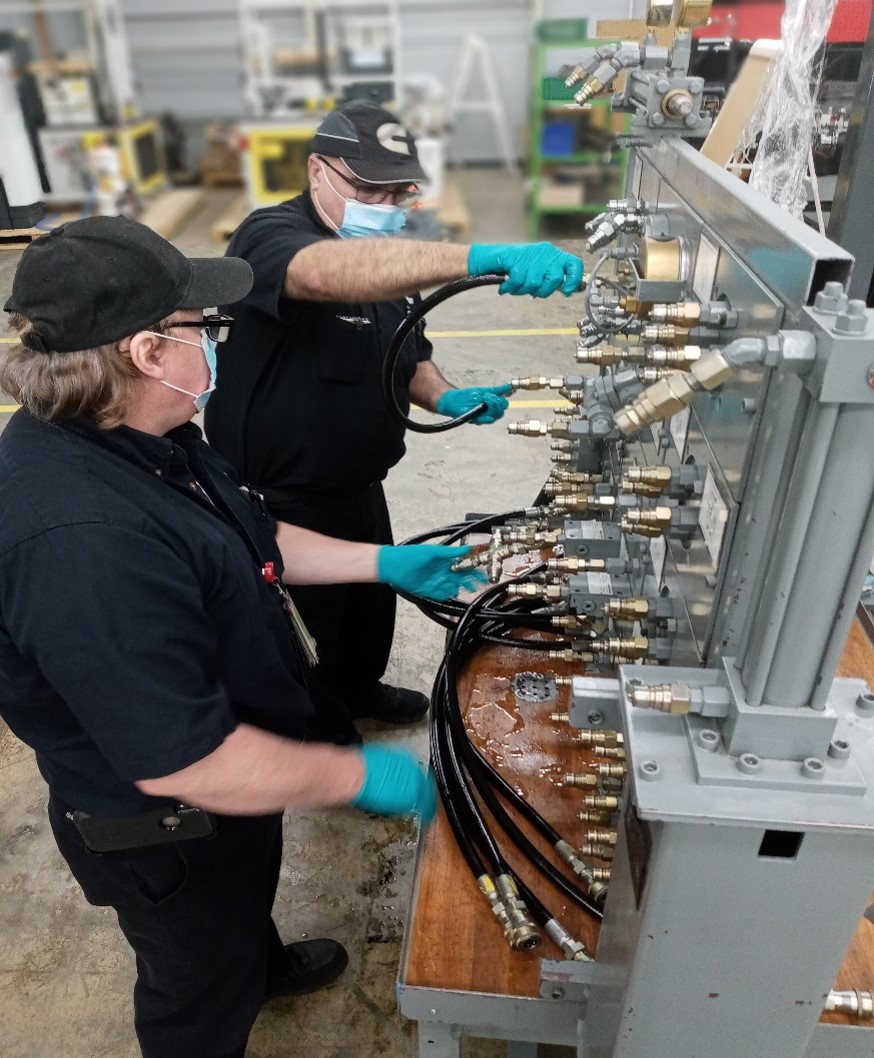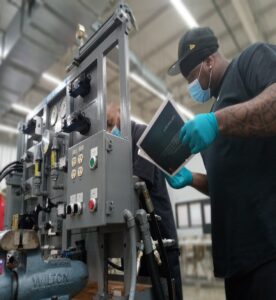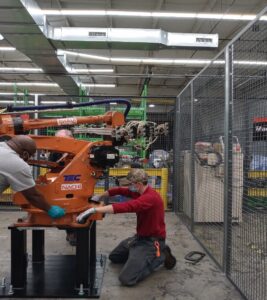Skilled Trades Apprenticeship Program: A Key Recruitment and Retention Tool for Cummins Rocky Mount Engine Plant

“People are at the heart of our business,” said Rohit Krishnan, maintenance business leader at Cummins’ Rocky Mount Engine Plant (RMEP). “So, it’s critical that we have the right talent to ensure the site’s continued success and its positive impact on the community.”
 Cummins, a global power technology leader that designs and manufactures a broad portfolio of power solutions, has had a skilled trades apprenticeship program in place for decades at its engine manufacturing plant. The plant is located in Whitakers, NC, right outside of Rocky Mount. The company’s apprentice applicant pool comes from a combination of existing employees from the facility as well as external hires.
Cummins, a global power technology leader that designs and manufactures a broad portfolio of power solutions, has had a skilled trades apprenticeship program in place for decades at its engine manufacturing plant. The plant is located in Whitakers, NC, right outside of Rocky Mount. The company’s apprentice applicant pool comes from a combination of existing employees from the facility as well as external hires.
One of Cummins’ flagship manufacturing sites, RMEP employs over 2,000 people, 200 of whom are individuals in skilled trades with 50 of those being current apprentices.
Krishnan explained that the program is a pivotal recruitment and retention tool for the company in today’s tight labor market.
“In Whitakers and the surrounding region, multiple companies are fighting for the same talent,” he said.
“But what attracts people to Cummins is our culture. We provide opportunities for growth, challenging work, and a good work-life balance. Our apprenticeship program is an essential tool to get top talent into our facility, and once they experience our values firsthand, they don’t want to leave.”
The only requirements to become a Cummins apprentice are a high school degree and a few years of work experience. The company then pays to put its apprentices through relevant engineering coursework at local community colleges.
Within the apprenticeship structure are several tiered levels with required skills-based assessments to move up a level.
 The company made an essential change last year to transition from solely on-the-job training hours to skills-based assessments for progression through its apprentice program—a strategy that was certified by ApprenticeshipNC—which provides guidance to Cummins and many other North Carolina companies on their apprenticeship programs.
The company made an essential change last year to transition from solely on-the-job training hours to skills-based assessments for progression through its apprentice program—a strategy that was certified by ApprenticeshipNC—which provides guidance to Cummins and many other North Carolina companies on their apprenticeship programs.
“ApprenticeshipNC has helped improve our program by giving us visibility into how other companies manage their apprentice program and providing recommendations on what we can do better,” said Krishnan, particularly noting its ongoing monitoring and certification of the RMEP apprentice program.
There is no cost to the employer to have ApprenticeshipNC—an entity which falls under the NC Community College System—to build out and launch an apprenticeship program that meets an organization’s specific needs. It also assists financially with education costs, wage reimbursement, and tools for on-the-job training.
ApprenticeshipNC also helps devise structured on-the-job learning, relevant instruction, and a progressive wage scale. Consultants also help guide the program setup and coordinate, as needed, with local community colleges for classroom instruction.
Additionally, registered apprentices earn state and national credentials certifying their skills.
Speaking to how helpful the program has been to participating companies, John Loyack, vice president of economic development with the North Carolina Community College System said, “My team is greeted with a hug; I’m greeted with a handshake.”
He cited that currently the average age of an apprentice is 41 years old, which he explained is why it is important to engage youth early on in their educational journey.
“We don’t want them to wait until they’re 41,” he said. “But it’s great way to earn while you learn, get on the job training and mentorship, and be compensated accordingly while your skills grow.”
Loyack talked about the evolution of the program, which started in trades and manufacturing and has expanded into many industries and business sectors. Today, cybersecurity in manufacturing, hospitality, accounting, nursing, and other health care positions have emerged as apprenticeship needs for employers, just to name a few.
Just last year ApprenticeshipNC registered 140 additional apprenticeship programs, beyond the 1,000 that were already in place.
Speaking to cost-benefit analysis of apprenticeships, “There is a 170% return on investment per apprentice,” said Loyack.
He also said that apprentices typically yield higher employee productivity and lower turnover.
To learn how registered apprenticeships can help you build a skilled workforce that meets your needs, contact an ApprenticeshipNC representative in your area.
Our ‘Success Stories in Action’ series spotlights success stories working toward solutions to pressing workforce challenges, as part of the NC Chamber Foundation’s Institute for Workforce Competitiveness.